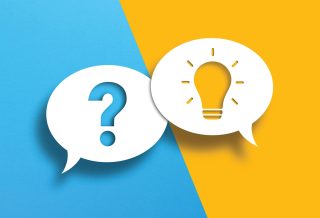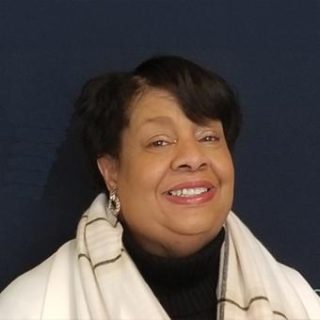FOCUS
Coaches shape early learning and beyond
By Suzanne Bouffard
Categories: Coaching, Early education, ImplementationApril 2021
In 2016-17, I spent many hours with the educators and staff of Boston Public Schools’ early childhood program, including the Eliot K-8 Innovation School in Boston’s historic North End neighborhood. The Eliot had made a remarkable turnaround over a 10-year period — a transformation that principal Traci Griffith attributed, in part, to the addition of a pre-kindergarten classroom.
Griffith had advocated for that classroom because she believed that “with full-day pre-K, you could create this amazing opportunity for children to learn how to be part of a larger community” (Bouffard, 2017, p. 52). In some ways, it was a surprising move for Griffith, a former middle school teacher who had never worked with young children before.
Griffith is not the only educator to find herself unexpectedly overseeing early childhood classrooms and shepherding the learning of tiny people with enormous curiosity and huge potential. Nor is she alone in crediting those programs with helping students get off to a good start and find long-term success.
But achieving the results Boston has with pre-K takes a lot of intentionality and capacity-building, not only among the early childhood staff but among leaders like Griffith and even teachers in later grades. At the heart of the most successful pre-K and early elementary programs is professional learning — and at the heart of the professional learning is coaching. The Eliot’s pre-K and kindergarten teachers have worked with district early childhood coaches for many years, even after becoming experts themselves.
''At the heart of the most successful pre-K and early elementary programs is professional learning.'' @SuzanneBouffard Share on XEarly childhood programs have long been leaders in instructional coaching. As a result of studies showing its value for teachers and students (Yoshikawa et al., 2013), coaching is now considered to be a benchmark of quality in early childhood (Friedman-Krauss et al., 2020), and programs receiving Head Start and Early Heard Start funding have been required to provide teacher coaching (along with a minimum of 15 hours per year of other professional learning) since 2017.
Even though early childhood is a unique period of development, the success of early learning coaches offers valuable lessons for professional learning across grade levels and settings. It can provide a model of effective coaching practice, serve as a resource for collaboration, and help create alignment across early childhood and elementary grades.
The success of early learning coaches offers valuable lessons for professional learning across grade levels and settings. Share on XGROWING NEED FOR EARLY LEARNING SKILLS
Elementary school administrators and staff have always needed skills in working with young children, particularly kindergarteners. But in recent decades, publicly funded pre-K has grown rapidly, expanding the already wide age range of children served by schools and districts. More than 1.6 million 4-year-olds now attend publicly funded pre-kindergarten programs in the U.S. (Friedman-Krauss, 2020), many of them in public schools.
About 75,000 elementary school principals oversee pre-K classrooms in the U.S. (Abel et al., 2018), and, of course, the vast majority of elementary schools include kindergartens. But a large percentage of principals have no experience or preparation for working with young children.
One study found that only about a quarter have an early childhood certification, and only around half have engaged in professional learning with an early childhood focus (Abel et al., 2016). It’s no surprise, then, that about 80% of early career principals do not feel well-versed in early childhood education (Lowenberg, 2015) and 45% consider early childhood classrooms to be of moderate or serious concern (Fuller et al., 2018).
Teachers, too, are finding themselves working with younger children. Although many pre-K and kindergarten teachers have trained specifically to work with those populations, others have not. Teacher licensing requirements vary widely from state to state, and in most states, teachers with an elementary school credential but no specific early childhood training can teach kindergarten (Fowler, 2019).
Shifting teacher assignments sometimes mean that teachers who are used to teaching 3rd or 4th graders suddenly find themselves in classrooms with 5-year-olds. Such shifts underscore early childhood experts’ concerns about the developmental appropriateness of public school early childhood classrooms and kindergarten becoming “the new first grade” (Bassok et al., 2016).
To get children off on the right foot, there is a clear need to address these gaps in knowledge and experience. Professional learning offers multiple avenues to ensure that all early childhood teaching and leadership is high quality, developmentally appropriate, and highly effective.
Professional learning offers multiple avenues to ensure that all early childhood teaching & leadership is high quality, developmentally appropriate, & highly effective. Share on XIn districts and schools that have committed to such professional learning, the results speak for themselves — and sometimes they speak loudly enough that they influence teaching and learning in later grades, too. For example, Boston’s pre-K program for 3- and 4-year-olds has seen such positive and lasting results that the early childhood department used its curriculum and professional learning as a model for redesigning teaching and learning in grades K-3.
COACHING AT THE CENTER
At the center of the most successful professional learning models for early childhood is coaching (O’Keefe, 2017; Yoshikawa et al., 2013). If you’ve ever been in a classroom of 18 curious, energetic 4-year-olds, you know how helpful it can be to have another set of expert eyes and ears. And if you haven’t ever been in such a classroom, you would appreciate that support even more.
Although teaching young children may look easy, it is anything but. It requires not only a deep well of engaging, playful strategies for interacting with young children, but an intentional focus on the foundational skills they need for later learning. Bringing these pieces together requires the skill, coordination, and grace of a ballet dancer. And just like the best ballet dancers, great early childhood educators hone their craft through a lot of practice and a lot of coaching.
Many studies have found that high-quality coaching improves early childhood teachers’ practices in language, literacy, math, and social-emotional development (O’Keefe, 2017). Although fewer studies have found direct links between coaching and student outcomes, it is worth noting that coaching is a core component of some of the most respected programs, like Boston’s, New Jersey’s long-running Abbott Preschool Program, and targeted interventions like the Chicago School Readiness Project and Head Start REDI.
Coaching is valuable for leaders, too. School leaders not only set the tone for teaching and learning in their schools, but they also set expectations for teaching practice and they observe and assess teachers. Numerous pre-K teachers have shared stories with me of principals asking them to follow schoolwide behavior guidelines and instructional strategies that are not developmentally appropriate for young children.
Some of these teachers said they had been marked down on evaluations for failing to conduct some of these practices, such as writing a daily objective on the white board, a strategy intended to provide clarity for students but not very useful for 4-year-olds who don’t know how to read.
Coaching can help principals and other administrators understand what to look for during classroom observations and walk-throughs, the kinds of questions to ask teachers and feedback to share, and the types of teaching strategies to not only expect but also support with resources and advocacy.
A powerful combination
As in older grades, early childhood coaching is particularly useful when paired with a high-quality, developmentally appropriate curriculum. In preschool and early elementary classrooms, strong curricula use lots of hands-on learning and active exploration of key concepts in child-driven ways.
In Boston’s curriculum, the units and lessons are organized around themes like family and weather, tying together diverse books, skill-building activities, enrichment, and cross-cutting concepts, with flexibility for teachers to customize the pacing and activities to their students. Using this curriculum well takes skill, and that’s part of the reason the coaching is so crucial.
It’s one thing to see an activity on the page, but another to listen to a coach explain how to really elicit children’s thinking about the concepts, like when they play a game to guess what shape object is inside a bag by assessing its geometric features. A reminder from a coach to use open-ended questions instead of saying, “Is the edge flat?” can make all the difference for children’s learning.
Another example of the powerful combination of curriculum and coaching comes from a recent experimental study of Making Pre-K Count, an initiative to build children’s early math skills in 69 school and community-center-based pre-K programs in low-income neighborhoods in New York City (Maier & Kou, 2019).
Using the Building Blocks math curriculum, a highly engaging set of lessons based on research about the progression of early math learning, teachers engaged deeply with the curriculum and worked with coaches to help children use math language and understand fundamental math concepts.
The study found that teachers who engaged in more coaching showed higher degrees of instructional quality and positive learning interactions with students. These outcomes were greater than for teachers who attended in-service trainings but not coaching. Furthermore, the math coaching benefited teachers of all experience levels, whether they were new or had been teaching for many years.
Watching teachers and children engage with Building Blocks is one of my favorite parts of spending time in high-quality pre-K classrooms. Like many early childhood teachers (Leana, 2011), I have not historically been a lover of math. But when I watched children explain why a slice of pizza isn’t a true triangle (its crust is usually not a straight line) and point out the “core units” in the patterns they made with Do-A-Dot paints, I found myself delighting in the concepts of geometry, counting, and more. I remember Carolyn, one former preschool teacher who became a coach, telling me, “I never thought I’d be a math person — and now I’m leading the math training!”
Lessons for all grade levels
There is much that teachers and leaders of all grade levels can learn from watching coaches like Carolyn, as they demonstrate how to make learning fun, playful, and fascinating.
Sometimes the strategies they share are simple ones about making classroom routines smoother and allowing opportunities for student choice. Sometimes they are specific instructional moves that could easily be transferred from the early grades to later grades. What 4th grader wouldn’t want to learn fractions by holding objects and solving real-world mysteries — and, most importantly, what 4th grader wouldn’t learn more from that experience?
One of the places where early childhood coaches really excel is integrating social, emotional, and academic skills. Educators of all levels are flagging social and emotional needs as top priorities this year, recognizing concerning trends that have existed for a long time but been exacerbated by the traumatic and ongoing events of the last 12 months.
Imagine the benefits of intentionally connecting early childhood coaches with later grades coaches and teachers. They could conduct joint coaching cycles to learn from each other and bring the best of one age group to another. They could lead professional learning communities where teachers work together across grades to understand one another’s strengths and concerns and create more vertical alignment and smoother transitions for students.
This kind of collaboration remains rare but is growing, especially in community-based settings. In Boston, early childhood coaches from the school district have worked extensively with community-based preschool teachers to bring the district’s curriculum and model to classrooms in YMCAs, Boys and Girls Clubs, and small private centers.
Likewise, in New Jersey, coaches work across settings, with some classrooms run in schools and others in private centers. As articles in this issue show, community coalitions in places like San Antonio, Texas, and Nashville, Tennessee, are aiming to make these kinds of connections as well, including shared professional learning.
Historically, it is less common to see districts pulling practices from early childhood classrooms into later grades, but that is changing. In Boston, the early childhood staff, who both write curricula and provide coaching, built on their pre-K curriculum to rewrite and redesign kindergarten, and then moved on to 1st and 2nd grades. As with everything the department does, it put coaching at the center of those efforts.
This kind of collaboration and alignment is the vision of the pre-K to 3rd grade movement. These efforts aim to create an intentional and seamless continuum of learning experiences across the early years from pre-kindergarten to 3rd grade (Stipek et al., 2017). Although these systems can look different from one school or district to another, they typically include both policies and practices, including professional learning, to create alignment of goals, philosophies, and strategies across grades.
The National P-3 Center, which works with states and districts across the U.S., emphasizes professional learning as one of the pillars of building alignment across the grades, and the National Association of Elementary School Principals created a set of pre-K to 3rd grade principal competencies, which include building professional capacity across the learning community (NAESP, 2014).
Finding resources
As with all professional learning, coaching should be part of a systemic approach to capacity-building. But learning from early childhood coaches doesn’t have to take a brand-new initiative. Schools and districts can start by finding and leveraging the resources already available.
Do you have coaches in your school or district who are experienced in early learning? If not, who else might you connect with — local community-based early childhood programs, nonprofit organizations, nearby university early childhood departments? The knowledge base about best practices in early childhood education continues to grow rapidly, and it brings many opportunities for children and teachers, not just in the earliest years but well beyond.
Download pdf here.
References
Abel, M.B., Talan, T.N., & Magid, M. (2018, December). Closing the leadership gap. McCormick Center for Early Childhood Leadership.
Abel, M.B., Talan, T.N., Pollitt, K.D., & Bornfreund, L. (2016). National principals survey on early childhood instructional leadership. McCormick Center for Early Childhood Leadership Publications.
Bassok, D., Latham, S., & Rorem, A. (2016). Is kindergarten the new first grade? AERA open. doi.org/10.1177/2332858415616358
Bouffard, S. (2017). The most important year. Avery.
Fowler, R.C. (2019, July 8). Educator licensure overlap in the early grades: Why it occurs, why it matters, and what to do about it. Phi Delta Kappan. kappanonline.org/educator-licensure-overlap-early-grades-prek3-fowler/
Friedman-Krauss, A.H., Barnett, W.S., Garver, K.A., Hodges, K.S., Weisenfeld, G.G., & Gardiner, B.A. (2020).The state of preschool 2019. National Institute for Early Education Research.
Fuller, E.J., Young, M.D., Richardson, M.S., Pendola, A., & Winn, K.M. (2018). The pre-k-8 school leader in 2018: A 10-year study. National Association of Elementary School Principals.
Leana, C.R. (2011). The missing link in school reform. Stanford Social Innovation Review, 9(4).
Loewenberg, A. (2015, August 31). Many new principals lack early ed knowledge. New America.
Maier, M.F. & Kou, A. (2019, October). Professional development supports and teacher practice in low-income pre-K programs. Urban Institute.
NAESP. (2014). Leading pre-K-3 learning communities: Competencies for effective principal practice. Author.
O’Keefe, B. (2017, December). Primetime for coaching: Improving instructional coaching in early childhood education.Bellwether Education Partners.
Stipek, D., Clements, D., Coburn, C., Franke, M., & Farran, D. (2017). PK-3: What does it mean for instruction? Social Policy Report, 30(2).
Yoshikawa, H., Weiland, C., Brooks-Gunn, J., Burchinal, M., Espinosa, L., Gormley, W.T., Ludwig, J., Magnuson, K., Phillips, D., & Zaslow, M. (October, 2013). Investing in our future: The evidence base on preschool. Society for Research in Child Development.

Suzanne Bouffard is senior vice president of communications and publications at Learning Forward. She is the editor of The Learning Professional, Learning Forward’s flagship publication. She also contributes to the Learning Forward blog and webinars. With a background in child development, she has a passion for making research and best practices accessible to educators, policymakers, and families. She has written for many national publications including The New York Times and the Atlantic, and previously worked as a writer and researcher at the Harvard Graduate School of Education. She has a Ph.D. in developmental psychology from Duke University and a B.A. from Wesleyan University. She loves working with authors to help them develop their ideas and voices for publication.
Categories: Coaching, Early education, Implementation
Recent Issues
BUILDING BRIDGES
December 2024
Students benefit when educators bridge the continuum of professional...
CURRICULUM-BASED PROFESSIONAL LEARNING
October 2024
High-quality curriculum requires skilled educators to put it into...
LEARNING TO PIVOT
August 2024
Sometimes new information and situations call for major change. This issue...
GLOBAL PERSPECTIVES
June 2024
What does professional learning look like around the world? This issue...












